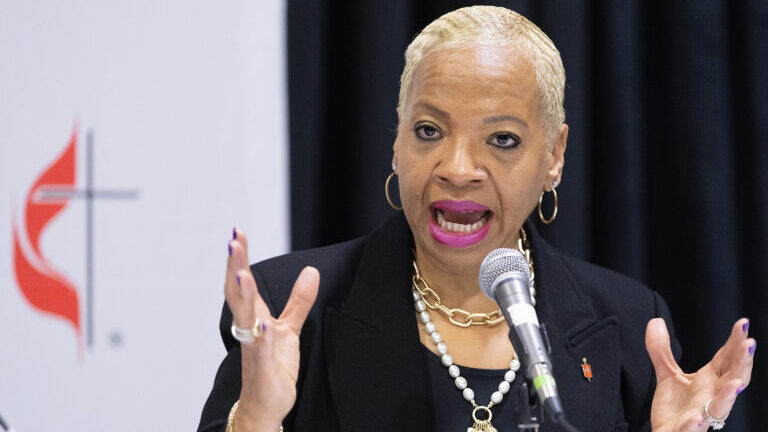Researchers today consider bad parenting one of the most important public health issues facing our society. Uninvolved, abusive, irresponsible, absent or immature parents are endangering the health and future well-being of our nation’s youth.
Rearing children is a monumental task, and every parent can make mistakes and feel like a less-than-perfect mother or father. Sometimes parents must deal with health crises, personal illness, financial problems, unemployment or other setbacks out of their control that can unintentionally affect the quality of their parenting.
Bad parenting, however, is different.
It can involve uncaring parents who provide inadequate discipline. This can occur in a variety of ways: It can mean parents are too strict. It can mean they withdraw affection and attention, showing conditional love based on a child’s actions. Or it can mean they are absent or uninvolved in a child’s life.
Some parents are too wrapped up in their own problems, stresses and anxieties to selflessly parent their children.
Inadequate parenting has a serious impact on children and on society as a whole.
Abuse
Child abuse in this nation is common.
More than 4 million cases of child abuse and neglect involving nearly 7 million children are reported each year, according to the American Academy of Pediatrics.
The highest rate of child abuse occurs with babies under the age of 1. Twenty-five percent of victims are below the age of 3.
Child abuse can be physical, sexual, emotional, educational and medical. Parental neglect — failing to provide food, clothing, shelter and other necessities children need to survive and thrive — is considered child abuse.
Many children live in homes with parents who have mental health issues or substance abuse addictions, who are embroiled in domestic violence or who are immature teenagers. Many live in poverty. Children and youth living with abusive and inadequate parenting usually suffer devastating, long-term consequences.
Fatherless homes
Fatherless homes are also a significant problem. It is estimated that 24.7 million children under 18 live without their fathers, according to the U.S. Census Bureau.
Research shows a father’s absence affects children in numerous adverse ways, while a father’s presence makes a positive difference in the lives of both children and mothers, according to the National Fatherhood Initiative.
Divorce is one of the leading causes of fatherless homes. The second leading cause is out-of-wedlock births. The United States has the highest divorce rate, the highest teenage pregnancy rate and the highest child poverty rate in the Western world.
According to research, children and youth raised without a father in the home are more likely to experience:
- Behavioral problems.
- Delinquency.
- Obesity.
- Lower grades.
- Poverty.
- Involvement in crime.
- Maltreatment.
- Homelessness.
- Psychological problems.
In addition, adolescent females from fatherless homes have a higher chance of becoming pregnant. Statistics also show that 63% of youth suicides are from fatherless homes, more than five times the national average, according to the U.S. Department of Health.
Absence
In situations where parents are drug addicted, incarcerated, abusive, neglectful, immature or inexperienced, grandparents and other relatives must often step in and take full responsibility for raising their children.
According to the U.S. Census Bureau, 1 in 10 grandparents had grandchildren living with them. For older adults, the sudden stress of becoming a primary caregiver again can be overwhelming, financially draining and detrimental to their health. And in cases where grandparents can’t manage it, children often end up in the foster system.
The nation’s foster care system is currently at a crisis level with too few foster parents to care for the nation’s children in need. There are now approximately 400,000 children and youth in foster care, according to the Child Welfare Information Gateway at childwelfare.gov.
How the church can help
Here are a few ways the church can reach out to help parents and children:
- In sermons, Bible study classes and seminars, strive to teach parents the qualities of good parenting, helping equip them with the skills necessary to raise their children.
- Intervene and alert proper authorities when abuse or neglect is suspected involving a child in your church or community.
- Create a list of resources, addresses, phone numbers and websites where church and community members can report child abuse or neglect and where overwhelmed parents can receive help.
- Seek ways your church can become a protector and promoter of children and families, empowering them and making them a high priority in the church’s ministry.
Resources
Download infographics and other material to use in your church at fatherhood.org/father-absence-statistic
For more statistics on the impact of fatherless homes on children and youth, please see: thefatherlessgeneration.wordpress.com/statistics/
For ministry tools and resources to help equip and train parents, please see:
mintools.com/biblical-parenting-resources.htm
worldwithoutorphans.org/resources/for-churches
d6family.com/creating-a-parenting-resource-center-in-your-church-on-a-budget/








